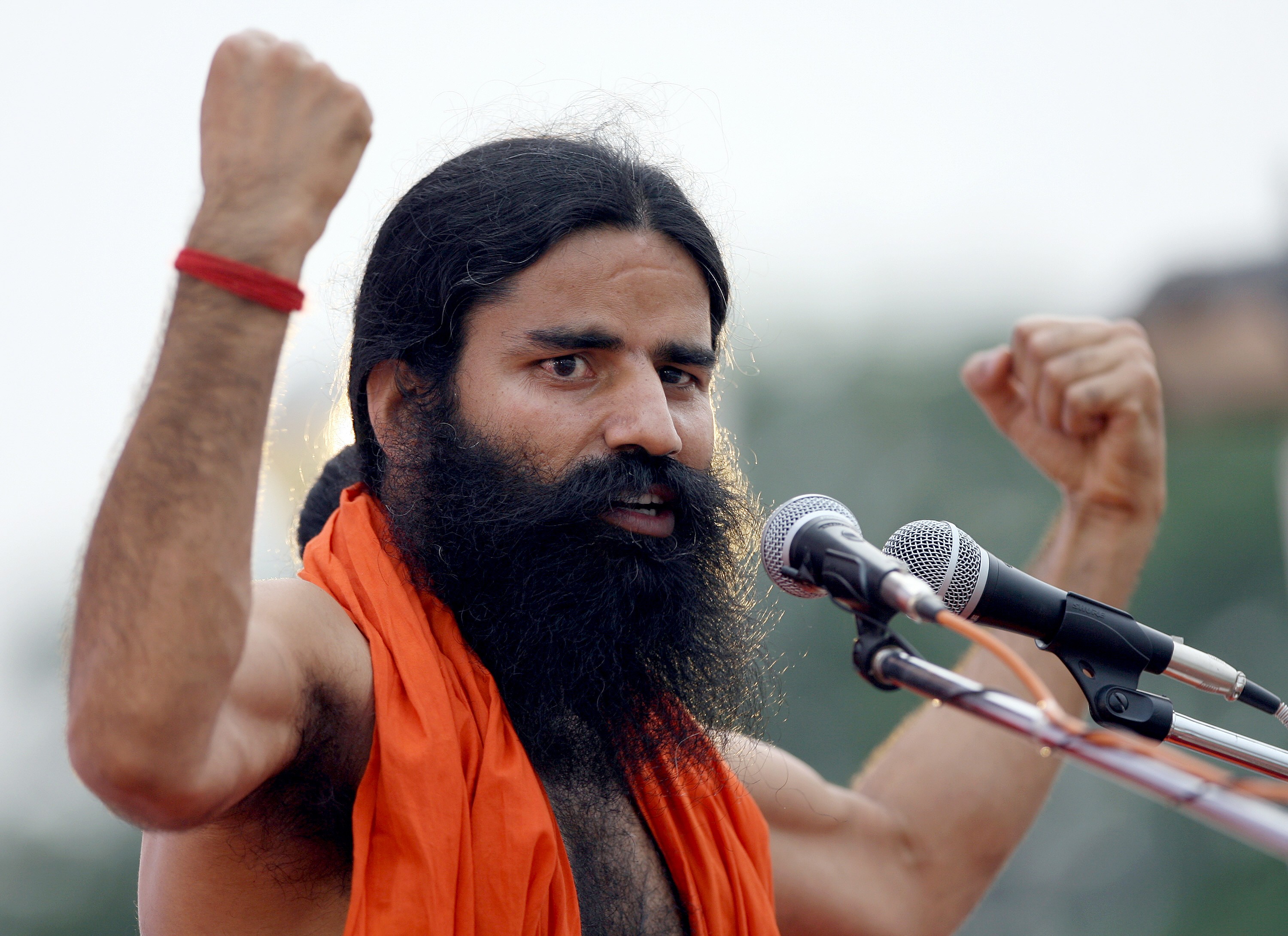
At first sight, Baba Ramdev looks like the world’s oddest tycoon -- and with his infectious, lopsided grin and bright saffron robes, surely the most harmless. But India’s favorite yoga teacher has expanded his presence beyond the country’s multitude of religious channels, which are full of his sermons, and even its news channels, where he’s a strong supporter of the nationalist government of Prime Minister Narendra Modi.
Now he’s moving into India’s grocery stores with his Patanjali brand of “traditional” cosmetics and processed foods. The company -- which is owned and run by his closest followers, not the supposedly ascetic Ramdev himself -- grew 150 per cent last year. Ramdev has said he intends it to grow as fast for the next five years.
Patanjali products have developed an audience by purporting to be organic and quality-conscious. With them, and by helping to popularize yoga in its country of origin, Ramdev may have kept more than a few members of the notoriously overweight Indian middle class from toppling over.
But the way Patanjali has chosen to market its products is disturbingly xenophobic. And their popularity may force other retailers to follow suit.
With Patanjali, Ramdev and his followers have promoted a stridently nationalist line. They would claim that when you buy a Patanjali toothpaste, you aren’t just preventing cavities but also buying freedom from the West.
Patanjali has also been remarkably nimble at casting competitors as outsiders, even though most of them -- even the multinationals -- have been operating here for decades and are almost completely Indian in management and marketing. Last year, after Nestle India’s best-selling Maggi instant noodles ran into regulatory trouble, Patanjali rushed an all-Indian variant into stores to take advantage of the gap in the market, with Ramdev promising a “healthy alternative.” (Unfortunately for Patanjali, its alternative almost immediately ran into similar regulatory trouble.)
Patanjali’s rivals are clearly worried. Now that selling “Indian-ness” is an advantage, even the most foreign of companies are trying gamely to keep up. Several are hastily reviving “herbal” and “ayurvedic” divisions and brands that they had sold off or shut down years ago. Lufthansa’s current ad campaign in India features the line “More Indian than you think.” Even phones from Chinese electronics major Xiaomi arrive with big “Made in India” stickers across the front of the box.
This festival season -- we’re moving towards Diwali, the festival of lights and of massive sales -- Ramdev has upped the ante, calling for an old-fashioned boycott of Chinese-made goods. He complains of the Beijing regime’s solid support of Pakistan. (His plans to launch a line of “swadeshi,” or indigenous, jeans are no doubt just a coincidence.) Campaigns across social media have taken up the call; schoolchildren have launched protest marches and vowed to not to buy Chinese firecrackers.
This is going to be a headache for Modi's government, not just foreign companies. The Swadeshi Jagran Manch, the economic wing of the family of organizations that includes Modi’s ruling Bharatiya Janata Party, has seized on the idea of a boycott of Chinese imports, which totalled $62 billion last year. The government has already given in to the Manch by making things very difficult for the US-based biotech company Monsanto. It’s now going to have to deal with this fresh demand, at a time when relations with China are already fraught.
As for multinationals, one thing is clear: India’s not as uncomplicated a market as it used to be. Previously, companies had to worry about political risk in China, with demonstrations outside American fast-food restaurants and mobs burning Japanese cars. India, on the other hand, would lap up anything imported and ask for more. But that was an older, perhaps less self-confident country. Ramdev’s India may not be quite as friendly a place to do business. - Bloomberg View